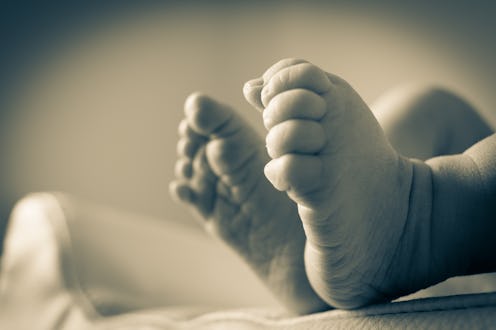Life
Indiana Has Drop Off "Baby Boxes" To Save Infants

In the last 15 years, more than 1,400 babies have been illegally abandoned on doorsteps and in trashcans, bathrooms, and other hazardous locations, often with deadly results. In an effort to prevent such tragedies in the future, the first Safe Haven Baby Box was installed at an Indiana fire station in late-April. Supporters of the measure hope that baby boxes will allow desperate parents to give up unwanted newborns anonymously, while also protecting the babies’ safety.
All 50 states, as well as the District of Columbia, have safe haven laws that allow parents to give up newborns at various locations, including hospitals, churches, and fire stations. By allowing parents to surrender new babies legally and without repercussions (provided that the baby is unharmed and the surrender occurs within a specified time frame that varies from state to state), authorities hope to prevent parents from abandoning infants in dangerous conditions. Dawn Geras, president of the Save the Abandoned Babies Foundation, told Fox News that these laws have resulted in more than 2,800 cases of infants being safely surrendered since 1999; however, many babies — more than 1,400, she says — have still been abandoned illegally.
Monica Kelsey, the medic and volunteer firefighter who spearheaded the Safe Haven Baby Box program in Indiana, believes that these illegal abandonments occur because some parents are too afraid to encounter people at places where it’s legal to surrender babies. She recounted a story to The Journal Gazette in Fort Wayne, Indiana, from a time when she was volunteering for a hotline dedicated to safe infant surrender. She said that a girl called in to ask where she could find a baby box. Upon learning that there weren’t any, the girl refused to go to a fire station or hospital to surrender her baby. When the girl’s boyfriend finally tried to drop the baby off at a hospital, the hospital staff didn’t know about Indiana’s safe haven law. It’s for cases like these that Kelsey created the Safe Haven Baby Box. “This is not criminal,” Kelsey told The Journal Gazette. “This is legal. We don’t want to push women away.”
Baby boxes are already fairly common in Europe, Asia, and Africa. The one installed in Indiana in April is essentially an incubator attached to the exterior wall of a safe haven (In this case, a fire station, though future boxes may be attached to other types of drop-off points). To use it, a parent opens the box’s door and places the baby inside, at which point the box locks and an alert is sent to responders inside the safe haven. The box is padded and contains a heating device that keeps the baby warm until it’s retrieved by authorities, which should only take minutes. Each box costs $1,500, and will be funded through donations rather than state or federal taxes. The Knights of Columbus of Indiana, a Catholic fraternal organization, is funding the first 100 boxes to be installed all over Indiana.
The Safe Haven Baby Boxes are not without critics. Geras, for example, believes that the baby boxes may prevent parents from getting the care and information they need. She told the Chicago Tribune that parents who take babies to hospitals and other safe havens often require medical care themselves, and that consulting with a trained professional at a safe haven may allow parents to explore options beyond surrendering their children. “If you use a baby box, you have stripped away that option,” Geras explained. “There's a lot of things that need to be done to improve safe haven laws throughout the country, but that's not one of them.” Other detractors have argued that, rather than installing baby boxes, we should be focusing on the deeper social and economic problems that lead people to have unwanted babies in the first place.
Kelsey, in turn, has suggested that the baby boxes are only intended to be one of a many-pronged approach at preventing infant abandonment. “If these boxes are the answer, great,” she said. “We're trying to come at it from all angles.”
The battle to end unsafe infant abandonment is a personal one for Kelsey, who was herself abandoned as a newborn at a hospital in 1973. In a YouTube video, she said,
I know when the day comes and the first baby is placed in one of the boxes that The Knights donated, my birth mother is going to be smiling down from Heaven, knowing that the child she abandoned at a hospital in 1973 is now saving abandoned babies so they, too, can be loved and adopted.
Image: Martinus/Pexels